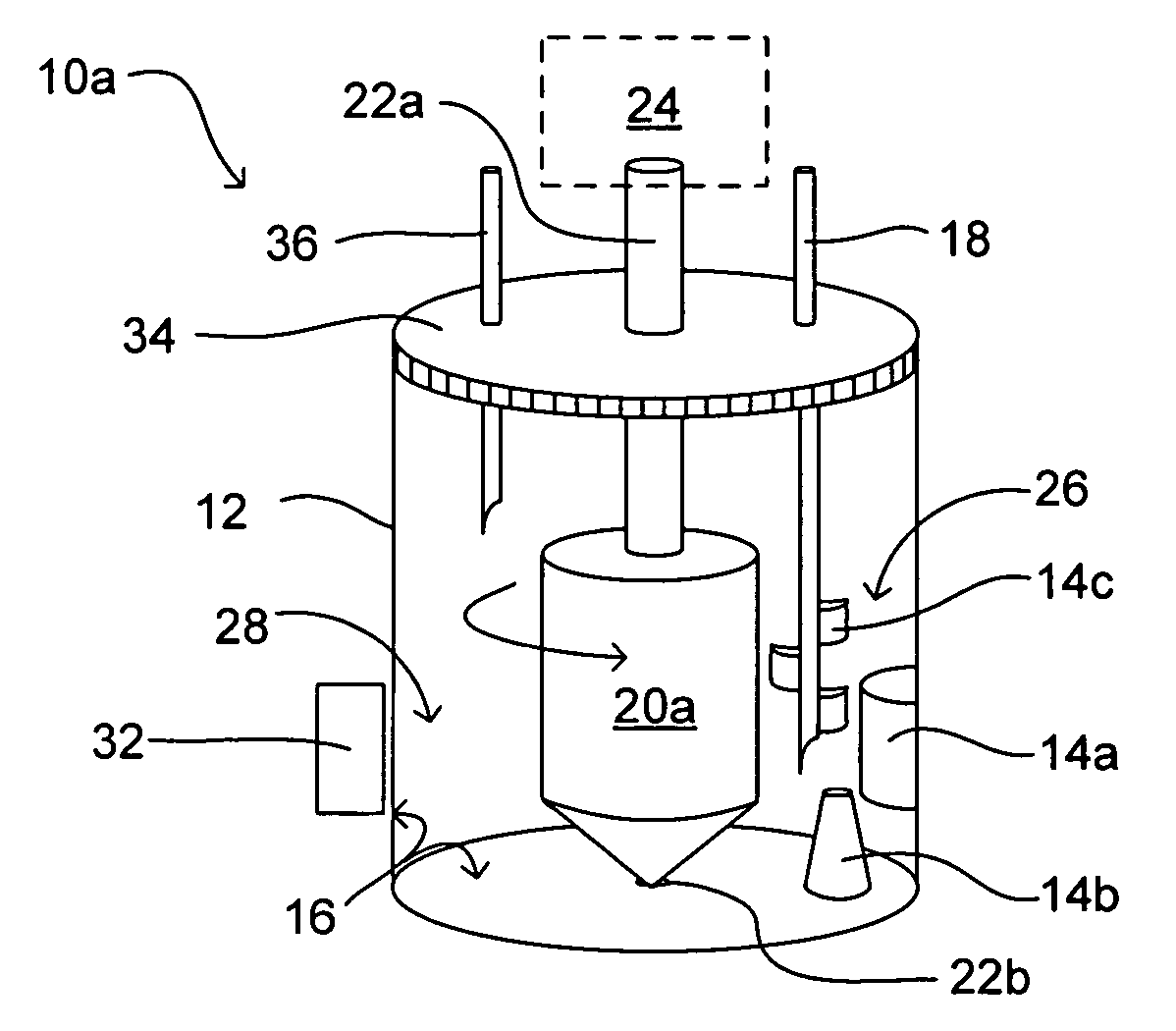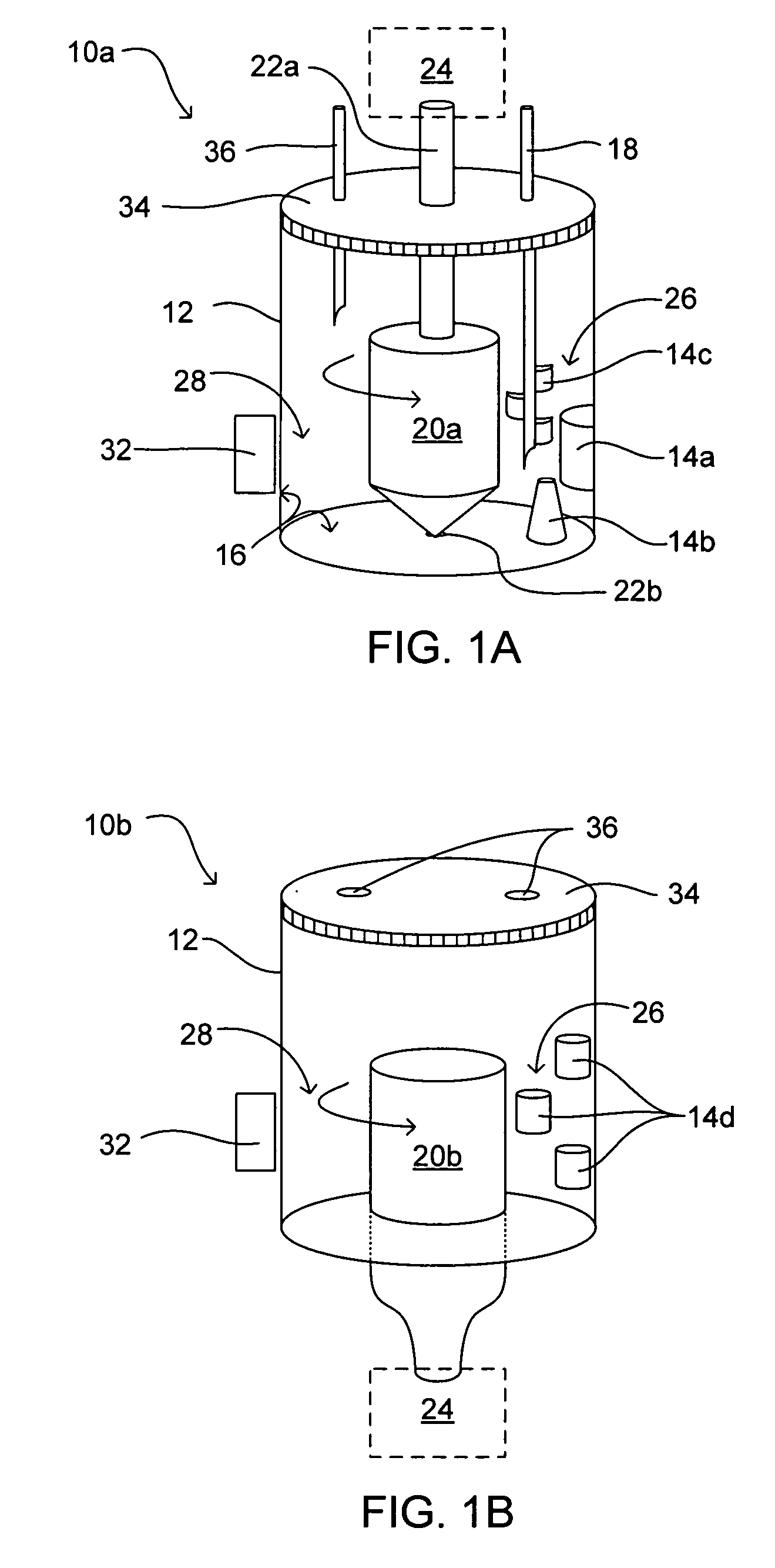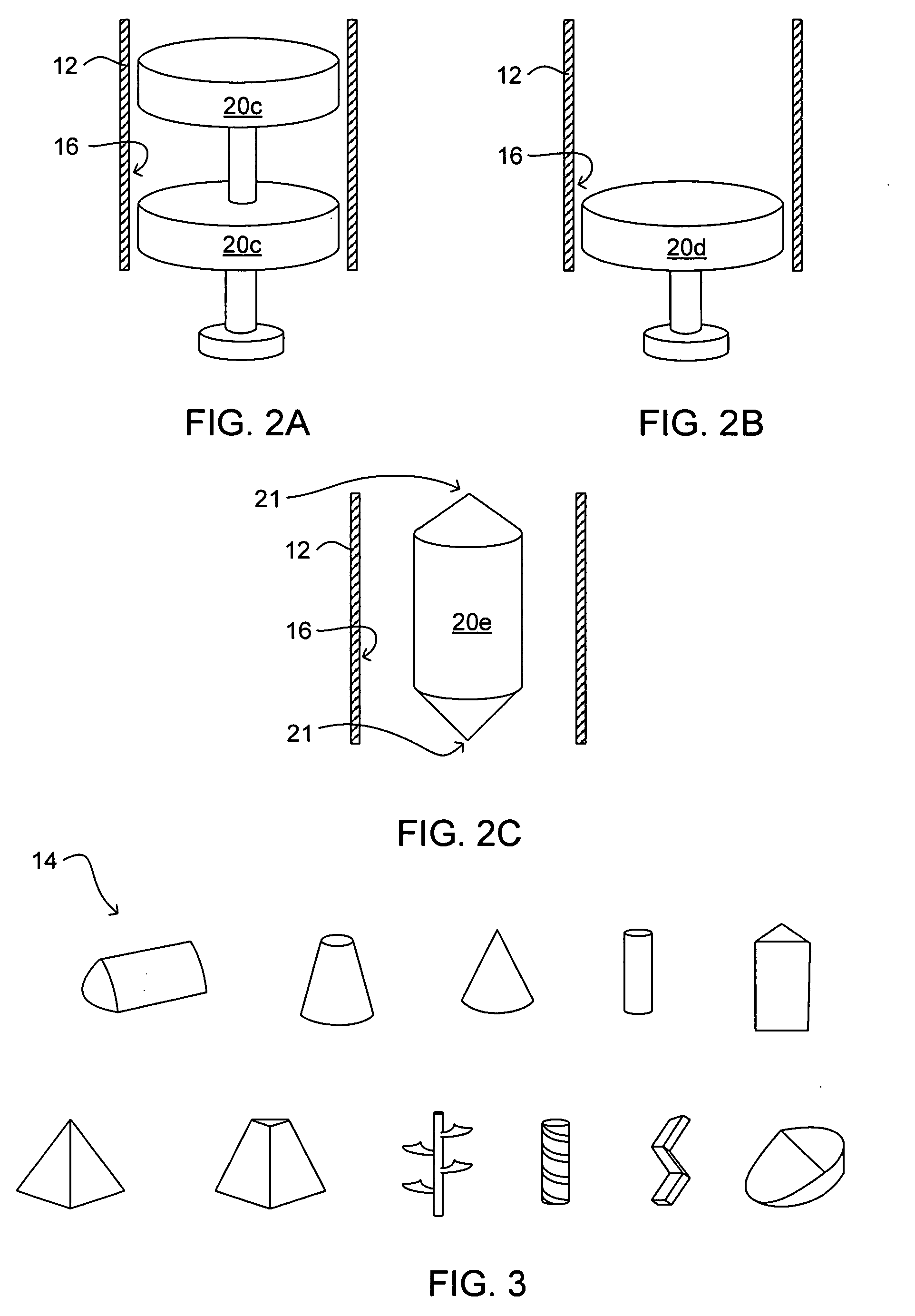Systems and methods for measuring fluid properties
a technology of fluid properties and systems, applied in chemical methods analysis, instruments, transportation and packaging, etc., can solve problems such as insufficient dosage, inconvenient flow, bleeding complications, etc., and achieve the effect of accurate measurement of fluid properties
- Summary
- Abstract
- Description
- Claims
- Application Information
AI Technical Summary
Benefits of technology
Problems solved by technology
Method used
Image
Examples
example 1
[0065] A cylindrically shaped fluid container having an inner diameter of 11 mm, a height of 20 mm, and a wall thickness of 2 mm was obtained. The fluid container is formed of a polycarbonate, coated on the inner surface with a non-tacky coating to increase compatibility with blood. A cylindrical cap, having an 11 mm inner diameter and 20 mm height made of the material DELRIN™ was fitted to substantially seal the inner diameter of the fluid container. The cap had a 4 mm diameter hole in the center, extending entirely through the height of the cap, i.e., 20 mm, and includes a side notch measuring 5 mm by 5 mm (also extending the entire length of the cap). The rotor included a cylindrical shaft 24 mm in length and 4 mm in diameter, and a rotor body that was 6 mm in diameter and 6 mm in length. The bottom of the rotor body included a sharp pointed tip with a 30° angle similar to rotor 20a shown in FIG. 1A. A disruption member was present that included a cylindrical protrusion measuring...
example 2
[0067] A fluid container including two identical reservoirs connected by an elongated conduit was formed, similar to the embodiment shown in FIG. 4A. The base of each reservoir was 20 mm in diameter and the length of each reservoir was 30 mm. At 20 mm below each base, the diameter gradually decreased to 3 mm at the top. The reservoirs were made of polypropylene, coated with a non-adhesive coating to increase blood compatibility. At the base of each reservoir was a piston that was 20 mm in diameter and 10 mm in length. The movement of the piston up and down into each respective reservoir was propelled by a linear actuator. The narrow ends of the reservoirs were connected with a conduit of polyvinyl chloride tubing having a 3 mm inner diameter, a 1.5 mm wall thickness, and 40 mm length. One reservoir contained a 2 mm circular injection port and a self-sealing rubber diaphragm 5 mm from the top.
[0068] A volume of 1 ml of whole blood was transferred into one of the two reservoirs prior...
example 3
[0069] A cylindrically shaped fluid container having an inner diameter of 10 mm, a height of 8 mm, and a wall thickness of 1 mm was obtained. The fluid container is formed of a polycarbonate, coated on the inner surface with a non-tacky coating to increase compatibility with blood. A cylindrical cap, having a 10 mm inner diameter and 4 mm height made of the material DELRAN™ was fitted to substantially seal the inner diameter of the fluid container. The rotor included a cylindrical shaft 24 mm in length and 4 mm in diameter, and a rotor body that was 6 mm in diameter and 6 mm in length. The bottom of the rotor body included a plug tip which fit into a recess in the bottom of the fluid container similar to rotor 54 shown in FIG. 5A. A stenotic baffle system was present that included a top baffle having a total length of 7 mm, inclined portions over 2 mm at a 60° incline, and a flat lower portion having a length of 3 mm. A corresponding lower baffle was formed having the same dimension...
PUM
| Property | Measurement | Unit |
|---|---|---|
| internal volume | aaaaa | aaaaa |
| internal volume | aaaaa | aaaaa |
| volume | aaaaa | aaaaa |
Abstract
Description
Claims
Application Information
 Login to View More
Login to View More - R&D
- Intellectual Property
- Life Sciences
- Materials
- Tech Scout
- Unparalleled Data Quality
- Higher Quality Content
- 60% Fewer Hallucinations
Browse by: Latest US Patents, China's latest patents, Technical Efficacy Thesaurus, Application Domain, Technology Topic, Popular Technical Reports.
© 2025 PatSnap. All rights reserved.Legal|Privacy policy|Modern Slavery Act Transparency Statement|Sitemap|About US| Contact US: help@patsnap.com



